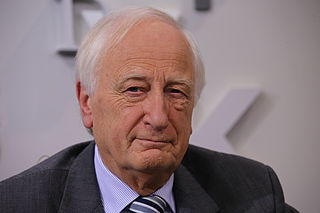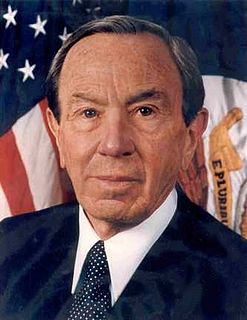A Quote by Vladimir Putin
Russia is a part of European culture. Therefore, it is with difficulty that I imagine NATO as an enemy.
Related Quotes
People take the lazy way out, and do not regard Putin and the Kremlin as the real enemy. They create a long but erroneous chain in their heads. Putin is the leader of Russia. Putin does X, therefore Russia is doing X, and Russia is our enemy. And so, we introduce sanctions, for example, against Russia.
I think NATO is obsolete. NATO was done at a time you had the Soviet Union, which was obviously larger - much larger than Russia is today. I'm not saying Russia is not a threat. But we have other threats. We have the threat of terrorism. And NATO doesn't discuss terrorism. NATO's not meant for terrorism. NATO doesn't have the right countries in it for terrorism.
I welcome the fact that Trump has clearly stated that NATO is not obsolete.And I think, also, that reflects that NATO is adapting. NATO is the most successful alliance in history because we have been able to change, to adapt when the world is changing. And now NATO is stepping up its effort in the global fight against terrorism, and we are responding to a more assertive Russia with an increase of our collective defense, with more presence in the eastern part of the alliance.
Following the end of the Cold War, there was much discussion concerning the point of NATO. In the event, it was reinvented as a means of reducing Russia's reach on its western frontiers and seeking to isolate it. Its former East European client states were admitted to NATO, as were the Baltic states.
In Ukraine, there has never been a consensus behind NATO membership. Even Yulia Tymoshenko was noncommittal when she was still prime minister. Georgia under President Mikhail Saakashvili pursued a rather aggressive stance, which stood in the way of its NATO membership. Given both states' unique relationships with Russia, concerns were justified that NATO membership would trigger Russia's reasonable fears of encirclement.
It shouldn't surprise any American to know that Russia uses its money and its intelligence services to spread disinformation, use subterfuge and deception and manipulation, to try to divide political opinion within the United States, within any Western European country, or among NATO countries. That's one of the techniques that Russia has used for decades, during the Cold War and during the Putin era.
US opposition to Russia and China has entailed sanctions against Russia, and Russia in turn has made counter-sanctions against Europe. So Europe is essentially sacrificing its opportunities for trade and investment in order to remain part of NATO. It is also agreeing to bomb Syria and the Near East, creating a wave of refugees that it doesn't know what to do with.






























